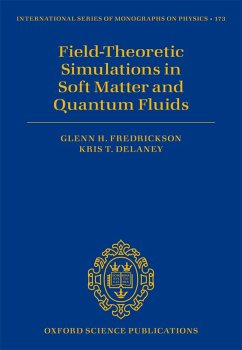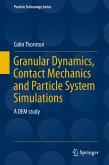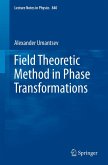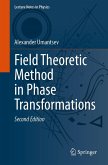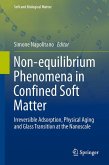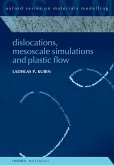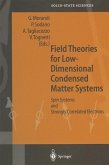This monograph provides an introduction to field-theoretic simulations in classical soft matter and Bose quantum fluids. The method represents a new class of molecular computer simulation in which continuous fields, rather than particle coordinates, are sampled and evolved. Field-theoretic simulations are capable of analysing the properties of systems that are challenging for traditional simulation techniques, including dense phases of high molecular weight polymers, self-assembling fluids, and quantum fluids at finite temperature. The monograph details analytical methods for converting classical and quantum many-body problems to equilibrium field theory models with a molecular basis. Numerical methods are described that enable efficient, accurate, and scalable simulations of such models on modern computer hardware, including graphics processing units (GPUs). Extensions to non-equilibrium systems are discussed, along with an introduction to advanced field-theoretic simulation techniques including free energy estimation, alternative ensembles, coarse-graining, and variable cell methods.
Dieser Download kann aus rechtlichen Gründen nur mit Rechnungsadresse in A, B, BG, CY, CZ, D, DK, EW, E, FIN, F, GR, HR, H, IRL, I, LT, L, LR, M, NL, PL, P, R, S, SLO, SK ausgeliefert werden.

